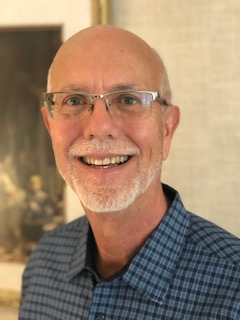
As the crisis of COVID-19 continues to unfold, it is interesting to notice conversations already shifting to “how will things change” and “what is next” for providers of housing and services for older adults.
For over 30 years, the journey to change the culture of aging services in the U.S. has been advancing from a medical/institutional model to one that is more person-centered. Now, it is shocking, and quite disturbing to hear some of the fear-based conversations regarding moving long-term care back to a hospital-type setting — actually what we as a society have been working so hard to move away from, that is the medical/institutional model of care.
What professionals working in the field of aging know is that moving long-term care back to a hospital-like model would not fix the current challenge of being better prepared for another pandemic. Going backward to the medical model would only “de-humanize” older people and those who work with them.
We must not forget that we are all human beings. We all have the human right to direct our lives and experience well-being, no matter where we live. If we get to the point where we cannot take care of ourselves and live independently, we still want to make decisions about our care and have the best quality of life possible. That would not include living in a hospital-like setting. It would include being able to enjoy the simple pleasures of home, maintain our daily routines, and experience well-being as we age — no matter how much clinical support we may need.
Our charge is to reframe the fear-based thinking that is being created and continue the journey towards person-centered care and services. One way to continue is to consider the idea of “care.” We must move to what the Eden Alternative refers to as “genuine care.” The Eden approach helps us understand that “care” is more than just medical treatment. Eden actually defines care as “helping another to grow.” Human beings of all ages want to be nurtured and continue growing. There is more to life than only being treated for our medical needs. Even though it is essential, medical care is not all there is to life. Eden calls on us to create the environment for genuine care,” which is a step beyond medical treatment. It is responding to the human spirit, not just the human body. We know that human beings die because of medically-related issues, but they also die because their spirit is not being nurtured.
In the field of aging, we strive to balance the clinical side of care, managing medications and following infection control guidelines, for example, with nurturing the spirit of the older adults being served. The spirit of older adults is nurtured when the plagues of loneliness, helplessness and boredom are addressed by close and continuing contact with others, meaningful activity and engagement, the ability to give as well as receive, and through the ability to experience spontaneity in our lives.
Staff working in person-centered organizations report that being person-centered has been a huge advantage during COVID-19. They say they would not change anything about their model of care. They are proud of the way they have served and protected their residents and staff during this time. They report that being relationship-based, staff know the residents well, so it has been easier to anticipate their needs and support them in various ways. Because they have consistent/dedicated staff assignments, they have been better prepared to address issues of loneliness and feelings of isolation.
Since person-centered organizations have empowered staff and teams, they have flexibility and spontaneity in making daily decisions with residents. It is easier to create the environment for meaningful engagement where staff are quickly aware when residents are upset about something or even experiencing a change in their condition. It is important to note that there is higher staff and resident satisfaction and less staff turnover in person-centered organizations.
Changing the culture of aging services is about seeing and responding to each individual as a human being, both those providing as well as receiving care. During a recent video-call, Dr. Bill Thomas, co-founder of Eden, reminded the group that the clinical side of care is simply not enough. We cannot fail to see the person we are serving as a full human being, which would happen if we only see the medical side of a person. He went on to say that we even cheat ourselves if we simply treat the person we are serving as an object – not really knowing them and being meaningfully engaged with them. We become more person-centered as we move away from a strictly medical approach to care in residential settings. No one wants to live in a hospital or a “facility” or even be referred to as a “patient” in their home. We want to be at home wherever we live — even in a nursing home setting.
We must continue to make person-centered care and services a reality in every setting where older adults live and are served. We cannot go backward — but must move forward with more intention than ever to create what we want for ourselves and the ones we love. We must always remember that we are all human beings and want to experience a sense of well-being as we age.
Walter O. Coffey, MPA, MA, Eden educator, is a managing partner of WD International Consulting, created to mentor, coach and develop leaders with an emphasis on supporting organizations in becoming more person-centered and retaining staff. Walter is an international leader in the culture change movement and has transformed organizations to become person-centered. He is a gerontologist and has served in leadership roles throughout the spectrum of aging services. Walter is an educator and advocate for individuals living with dementia. He has led the development of programs, regulations and legislation that positively affect the lives of older Americans.




